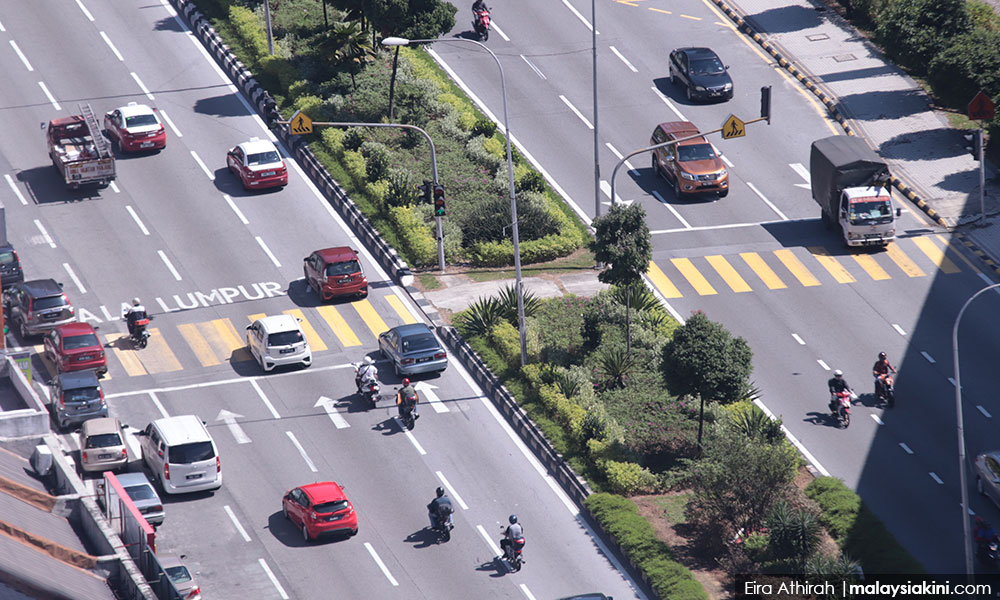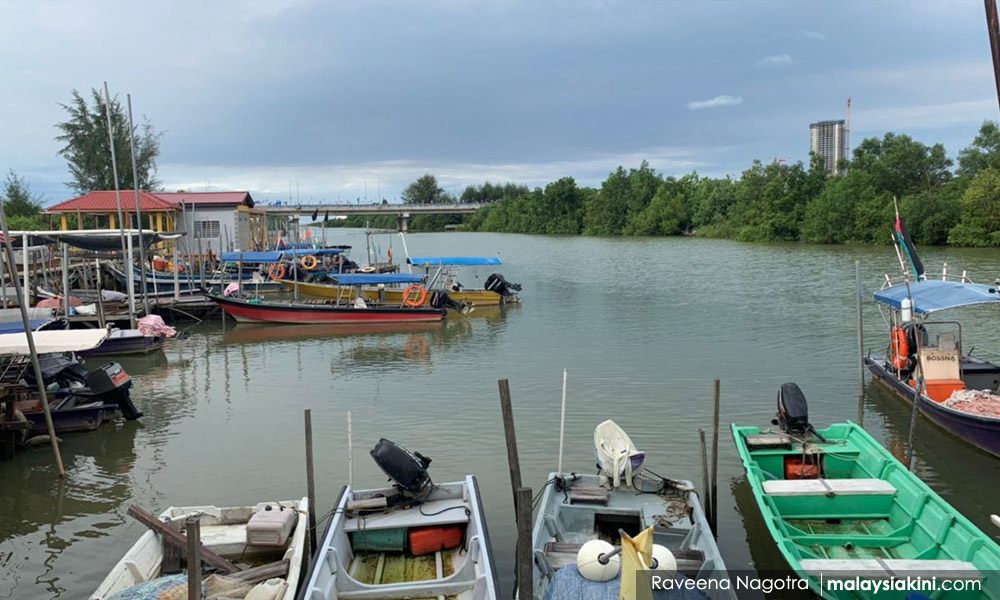Malaysia is a crony's paradise, and we know who to blame.
From the moment we are born, perhaps in a crony-owned hospital, to the time we die, cronies soon become a major part of our lives.
Is everything that is nice, profitable, or a landmark, or is of value, a crony asset?
What happened to Menara KL, or KL Tower, is just the tip of the iceberg. How many shares, or national treasures, have been offloaded to cronies, for a song?
Why do ministers think that they can play loose and fast with the rakyat's assets?
Crony bosses are a law onto themselves. They do not entertain complaints. Their businesses are expensive in the long run. They do not invite the competition. They thrive only because of their political masters.
If Malaysia were a cake, this is how it would be carved up - 20 percent would be the nation's, 20 percent would belong to the VVIPs, 20 percent to the ruling political elite and their families, and another 30 percent to the cronies.
Of the remaining 10 percent, seven percent probably belongs to foreigners, whilst a very generous three percent is the rakyat's.
Just take a boat ride along a nice stretch of river, or island, and ask the locals if the land is for sale. They'll say that the best bits of land are owned by VVIPs, a politician, or his crony.
You'd think that land in a prime location would belong to the state. It probably did at one time.
Then along comes a corrupt politician who suggests a white elephant project. There is no open tender but his crony's newly formed company, with a paid-up capital of only RM2, with neither experience nor employees, will be awarded the contract.
A few years later, the megaproject will be on life-support. Hundreds of millions of ringgits of taxpayers' money will be wasted trying to bail out the ailing company. Although the project is brain-dead, the crooked politician will arrange a fire sale.
The cronies will snap up this doomed project for a song, and own a piece of prime estate. Many landmarks in Ipoh, Perak were destroyed because cronies wanted the land on which stood many historical buildings.
Culture shock
Many graduates returning home from overseas suffer culture shock. Those who worked overseas discover a different work ethic. When overseas, senior staff and subordinates freely discuss issues. In Malaysia, there is a huge power differential. Those in positions of authority bark orders and rarely discuss.

Overseas graduates depend on public transport, but on their return, find that they are heavily reliant on the car.
Graduates who work on the other side of town would have to wake up at 5am, to reach their work premises at 8am. Cars would cost an arm and a leg, and most graduates will also have to forget about moving out of their parent's house.
Do cronies own the car companies too? I think so. In other countries, the same make of car is only a fraction of its Malaysian price.
Will foreign car manufacturers have to 'partner' with a politician if they want to trade in Malaysia? It's highly probable.
The highway is another nightmare. In the west, toll roads are a rarity. Guess who owns the toll companies in Malaysia? Another crony.
It's easy to spot sons of cronies. Some fresh graduates would soon become Datuks, and sit on the board of a crony company or GLC, a few years after graduation. Did they earn their position? Was it meritocracy or their papa's influence at work?
Corruption and cronyism
Both corruption and cronyism have become accepted parts of Malaysian culture. Cronies own companies which range from those which produce food, to rubbish collectors.
It's amazing how one can sweet-talk a politician into awarding cronies who lack the necessary skills and knowledge, with responsible roles, like waste management and recycling,
It is alleged that many foreign well-known fast food outlets can only operate in Malaysia if a ruling party politician becomes a board member.
Forget about fast food. The rice we eat comes from a crony establishment. The letters and parcels we send, are managed by the same crony empire.

We should support our local farmers and fisherfolk, but there are complaints that foreign fishing vessels, which illegally fish in our waters, deprive our local fisherfolk of their catch and income.
The foreign vessels are bigger and faster and use modern technology to haul in the fish. They deplete the stocks of fish in our seas. How true is the allegation that these foreign fishing vessels are owned by local politicians from a former ruling party?
Our maids and migrant labourers are brought in by a crony company. When these foreign workers need a health check, another crony company provides medical services.
We could take a bus ride, only to discover that a crony owns the bus company. We may want to fly, but it is a crony who owns the airline.
The national airline was once our pride and joy, but we pay good money for an abysmal service and an old fleet of planes. Moreover, our complaints are rarely addressed. Foreign alternative airlines have benefited from our failure. The only downside is that they do not provide a direct route.
If the goods or services provided by an outlet are too expensive, then go elsewhere. Show your displeasure, and at the same time stimulate healthy competition.
Does this unity government have the political will to get rid of crony capitalism? - Mkini
MARIAM MOKHTAR is a defender of the truth, the admiral-general of the Green Bean Army, and president of the Perak Liberation Organisation (PLO). Blog, Twitter.
The views expressed here are those of the author/contributor and do not necessarily represent the views of MMKtT.

No comments:
Post a Comment
Note: Only a member of this blog may post a comment.